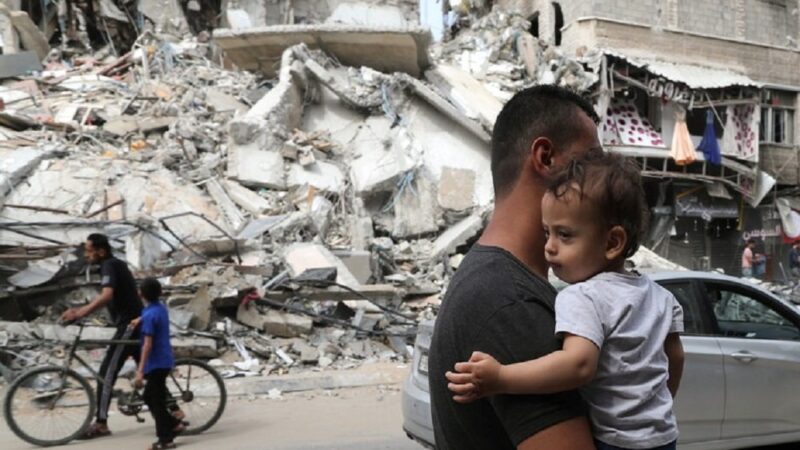Dr. Gholamreza Khaji, speaking in an interview with the website of the Strategic Council on Foreign Relations, referred to the adoption of a draft resolution in the UN Human Rights Council to launch an international inquiry into human rights violations in recent conflicts in the Palestinian territories, including East Quds, Gaza and the Occupied Territories. Although this mechanism is not very strong, certainly given the internal issues that the Zionist regime is faced with, such actions are politically detrimental to the regime and will deal a blow on it.
Decision of Human Rights Council, a political blow on Zionist regime
Saying that with the adoption of the resolution, the Human Rights Council should form a committee to review the situation and this committee should prepare a report by traveling to those territories, he added: The last lever that the Human Rights Council has is to send its report to the UN Security Council which will definitely be vetoed in that council by the United States or Britain; but inside the council, if the committee concludes with investigations that a gross violation of human rights has taken place, the representative of the Zionist regime must be held accountable to those allegations in meetings.
The university professor continued: Depending on whether the answers are convincing or not, even if the Human Rights Council votes against the Zionist regime, unfortunately there is no strong mechanism with executive guarantees; so the best thing they can do is either suspend the membership of the Zionist regime for three years or decide to expel it from the council.
Referring to other laws related to retaliation or punishment of countries that can be considered by the Human Rights Council in this regard, Khaji said: Members of this council can also use the international responsibility plan of governments and based on it if one of the countries hits another country, all countries must cooperate and put pressure on it, and can punish the Zionist regime with pressures such as economic sanctions, lack of deal with the regime and other means.
The international law analyst, meanwhile, noted the council’s poor performance despite the US and Zionist influence and the impact it has had on the results of the reports, adding: Experience has shown that reports are often thwarted by adding clauses in favor of the Zionist regime, or in the case when a report against this regime was prepared and the reporters were paid a lot of money and the text of the report was changed!
Need to pay attention to selection of research committee members
Emphasizing the importance of the composition of the members of the Committee of Inquiry, the professor added: If the members who are selected for preparing the report are elected politically, by preparing a neutral and weak report, the investigation will not be successful and the council’s decision will be annulled; therefore, the pro-Palestinian countries must emphasize the proper arrangement of the members of this committee and should make the public opinion of the world sensitive to the election of its members so that the Zionist regime would not achieve its targets in presenting a neutral report.
Khaji referred to the reaction of the Israeli prime minister, who called the UN Human Rights Council’s vote on the anti-Israel resolution “shameful”, claiming that the attacks on the Gaza Strip and the killing of Palestinian children and women were legitimate and legal and said: This regime always has a negative attitude towards the votes of the Human Rights Council. Prior to the formation of this council, those cases were reviewed by the Human Rights Commission, which was entirely in the hands of the United States and the Zionist regime, and they approved whatever they wanted; therefore, whenever a vote is taken in this council, it is severely criticized by the United States and the Zionist regime.
He stressed that the world public opinion and the leaders of some countries no longer listen to the statements of the United States and the Zionist regime, because it is aware of their positions, adding: When a crime is committed against Palestine, the countries are affected and it is not like in the past when there was no awareness of those issues. At the meetings of the Human Rights Council in Geneva, there are only a few countries that always support the regime in voting, and other countries strongly oppose it.
Zionist regime obstructing preparation of report of Human Rights Council
The international law expert stressed the Zionist regime foreign ministry’s rejection of the UN Human Rights Council resolution and NOTED that Tel Aviv did not cooperate with the council and other international organizations, adding: It is unlikely that the regime will allow this committee to investigate and certainly Israel will not cooperate.
Khaji said that the Zionist regime has experience in obstructing the pursuit of its crimes and acts actively in accordance with it in various ways, adding: Although the regime has stated that it does not accept the vote, at all stages, including efforts to monitor arrangement of committee members, contacting them to influence the drafting of the report, preventing them from entering Gaza, as well as lobbying with countries, it will intervene during the voting so that no result will be achieved of the final report.










0 Comments